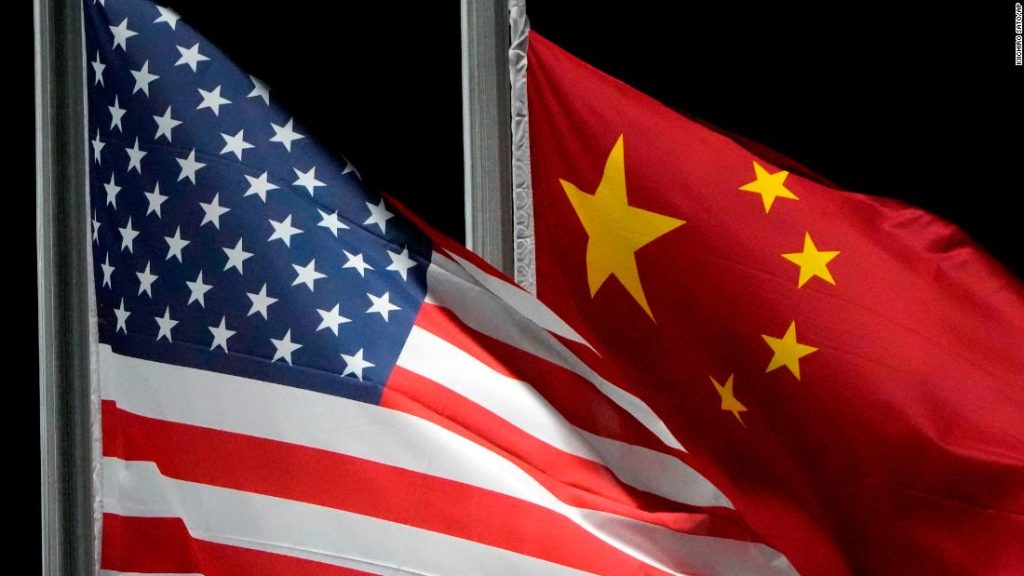Analysis: China’s shadow is looming over the US this week

A version of this story appears in CNN’s What Matters newsletter. To get it in your inbox, sign up for free here.And that was before the apparently tense phone call on Thursday lasting more than two hours, in which Chinese President Xi Jinping warned US President Joe Biden that when it comes to Taiwan, “if you play with fire you get burned.”There are elements of direct tensionA full-on diplomatic incident. Tensions are escalating over House Speaker Nancy Pelosi’s potential visit to Taiwan, the island with 24 million people that China views as its own territory but which has long been a self-governing democracy. Officials in the US have warned Pelosi of the risks of the trip, including pushing China further toward action against Taiwan.It’s not yet clear when Pelosi will visit, or if the trip will occur. She would be the highest-ranking lawmaker to visit since then-House Speaker Newt Gingrich in 1997.The US Navy redeployed ships to the South China Sea. It’s with Pelosi’s possible visit as the backdrop that a US aircraft carrier, the USS Ronald Reagan, and its strike group returned from a port call in Singapore, according to Reuters.China has gotten more aggressive toward Taiwan. Reporting on the tense hourslong conversation between Biden and Xi, CNN’s Kevin Liptak notes Taiwan has emerged as a key dispute between the countries “as US officials fear a more imminent Chinese move on the self-governing island.” Back in May, while in Asia, Biden seemed to say the quiet part of US foreign policy out loud when he said the US would respond “militarily” if China was to attack Taiwan.Get up to speed: What you need to know about China-Taiwan tensions.While the US does not officially recognize Taiwan’s government, it does sell defensive weapons to Taiwan — part of a long-standing policy of “strategic ambiguity,” in which the US stays vague on whether it would defend Taiwan in case of a Chinese invasion.There are warnings about subversionA ‘watershed’ warning on tech espionage. CNN recently reported on a scuttled plan by the Chinese government to fund an ornate garden at the National Arboretum in Washington, DC, which US officials were concerned could disrupt US nuclear arsenal communications. US officials are warning of a dramatic increase in espionage activity by the Chinese government. Read the full CNN exclusive.There is the all-important economic dependenceSeeking semiconductor independence. A rare bipartisan agreement to subsidize the production of semiconductors in the US was driven largely by the realization that the American tech sector should be able to operate and manufacture more independently from supply chains rooted in China.The bill passed the House with bipartisan support on Thursday and is now headed to Biden’s desk for his signature.”Should China decide to withhold its production or inhibit Taiwan from exporting its chips or building them, we would have a serious economic and, eventually, national security issue on our hands,” Biden said on Tuesday from the White House when lobbying for the legislation.Pushing renewable energy independence. Democrats waited until the semiconductor legislation was on a glide path to passage with bipartisan support before announcing a deal for a different, broader bill — which they’ll try to pass even without help from Republicans.Still, the deal announced on Wednesday by Senate Democrats for a health care and climate change bill is meant, in part, to similarly build up the US renewable energy sector to not rely so much on material controlled by China.The deal is possible because West Virginia Sen. Joe Manchin bought into it. He told a radio show in his home state that the bill would help the US develop batteries for electric cars.”We rely on ourselves and Canada, Australia and our favored nations without relying on the rogue nations, and those who are doing harm to us or wanting to do harm,” he said.Biden could lift Trump-era tariffs. One conundrum of Biden’s economic policy is his failure so far to lift tariffs former President Donald Trump imposed on China. Biden is said to be weighing the issue, although the tariffs weren’t expected to be a main line of discussion between him and Xi, according to Liptak’s report. Lifting the tariffs might be politically unpopular on its face, but could help ease some of the inflation that has come to dominate the kitchen-table concerns of American voters.The US government isn’t the only entity struggling to deal with China, which is still a key worldwide manufacturer of so many things, including iPhones. CNN’s Rishi Iyengar wrote a must-read about large multinational corporations — in this case, Apple — having trouble quitting China.Iyengar pointed to Apple CEO Tim Cook’s warning that ongoing supply chain bottlenecks, caused by China’s continued strict measures to stop the spread of Covid-19, could cost Apple $8 billion next quarter.”There is no doubt that tech manufacturing wants to move out of China. They cannot afford the risk of continued disruption to supply, and they want to gain better control over their ability to serve customers,” Lisa Anderson, CEO of supply chain firm LMA Consulting Group, told Iyengar. “With that said, China’s scale won’t be easy to replicate, and so the transition will take time and require investment.”A major escalation over Taiwan would bring both the economic and diplomatic issues together — and could disrupt the world economy as much or more than Russia’s war on Ukraine.






